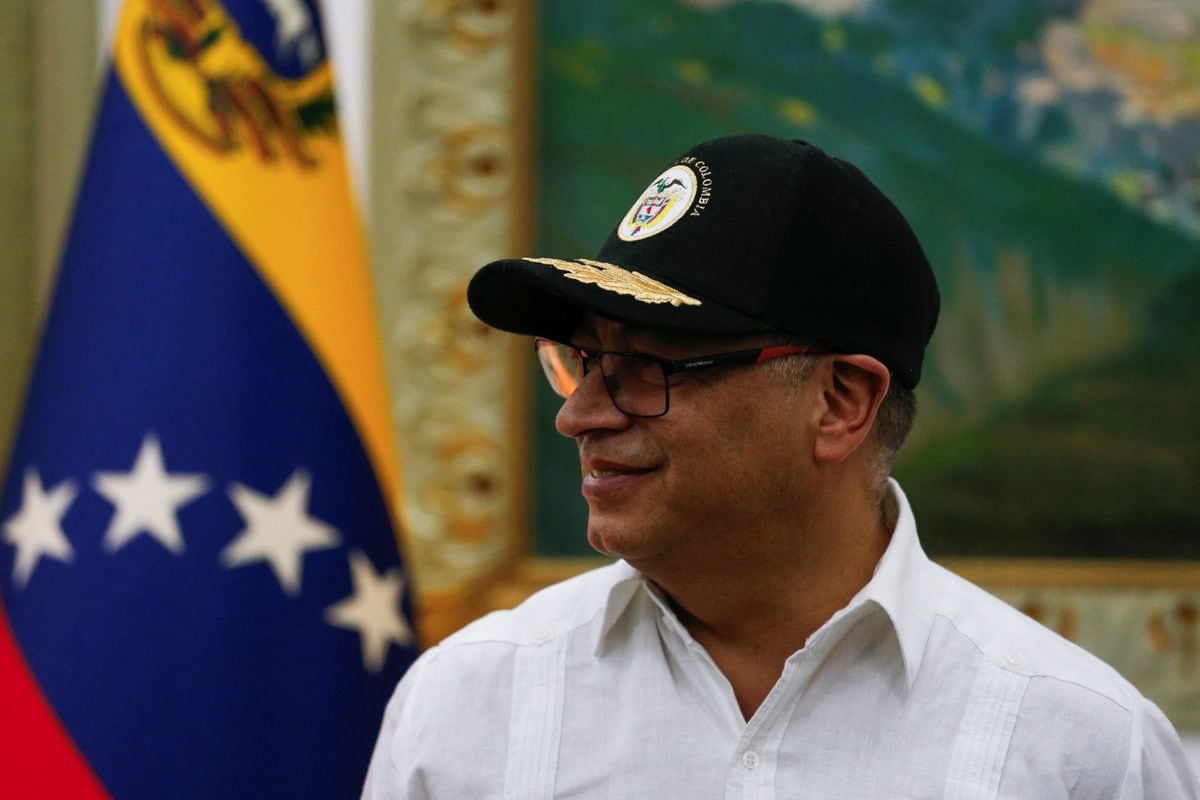Venezuelan opponents live in a continuous state of nerves. Every morning they get up and the first thing they do is check WhatsApp and social networks in search of signals from which to interpret the moment. Chavismo is unpredictable and operates with its own codes that everyone outside its circle can only guess at. Venezuelan politics is driven by conjecture rather than fact concrete, especially since these practically do not exist. On Wednesday, anti-Chavistas woke up to the rumor that Gustavo Petro had taken advantage of the visit to Maduro to meet with some of them the next day. The matter was shrouded in a certain mystery. Those who had not been called experienced moments of anguish and began to send messages to other colleagues in search of information. Who the hell had Petro met with?
He did not reveal it and posted a supposedly ambiguous tweet: “Yesterday I met with President Maduro and today with sectors of the Venezuelan opposition with the perspective of building political peace.” As the hours passed, it was learned that he had seen Manuel Rosales, the governor of Zulia, who registered at the last minute of the deadline that the authorities had given to register candidacies. Rosales turns out to be a chameleon: Chavismo persecuted him for a corruption case for which he was sentenced. Upon leaving it, he surprisingly reintegrated into the complex Venezuelan political system and wrested an important region from Chavismo. From there he has made a moderate opposition, many say soft and in agreement under the table with Chavismo. The rest of the opponents consider that Petro has met him because that does not upset Chavismo, which does not put obstacles in the way of Rosales, perhaps because he does not see a rival who can beat them.
Petro also spoke by phone with Antonio Ecarri, according to Venezuelan sources. Ecarri also belongs to that opposition that is considered a third way, something different from María Corina Machado, for example. He advocates getting the country out of tension and making a calm transition. His speech raises the eyebrows of the hard-line opposition, who find it deceitful to equate the anti-Chavistas with the ruling party, who manage all the levers of power and govern in an authoritarian manner. Ecarri floats between those waters and has the support of some former foreign leaders who do not see his candidacy as bad.
Petro has nothing to envy of Ecarri in the art of ambiguity. He has been very critical of the disqualification from participating in the elections of Machado, an opponent with real strength who could defeat Maduro, so the polls say. Chavismo, which is not a fool, is not going to let her participate under any circumstances, alleging vague issues such as the fact that he did not declare expenses during his time as a congressman or that he supported the US sanctions imposed on Venezuela. Petro, since a sanction from the Attorney General’s Office removed him as mayor of Bogotá, defends that elected officials cannot be removed from office by administrative authorities. If that measure that was applied to him was valid today and had not been revoked by the IACHR, he would not be president today. Since he has always had that speech, it would be very contradictory for him to change his mind regarding María Corina. So he has let the madurismo know: it seems wrong to steal the rights of a candidate in that way.
When the registration deadline was over and neither Machado nor her replacement, the renowned academic Corina Yoris, was allowed to register, the matter was too obvious to let pass. A cataract of countries denounced the Venezuelan electoral procedure. Colombia joined the criticism through its Foreign Ministry. The response of the Venezuelan Foreign Minister, Yván Gil, was very harsh: he accused the Petro Government of interference and of being at the service of the United States. Gil was not particularly ingenious, Chavismo resorts to these disqualifications when someone questions it. What is surprising is what happened days later. Petro described Machado’s disqualification as an “anti-democratic coup.” It was thick language that he had never used until then since he reestablished relations with Maduro. What was the response of Chavismo? None.
Instead, a meeting was organized between Colombian Foreign Minister Luis Gilberto Murillo and Gil on the Colombian side of the border, in Cúcuta. Good words came out of there and it was surely agreed that Petro would visit Caracas on Monday. Again, cordial atmosphere, criticism of the Ecuadorian Daniel Noboa for the assault on the Mexican embassy and Benjamin Netanyahu for the massacre in Gaza. Petro’s questions about the Venezuelan electoral system were buried under some of the French-style rugs that decorate the floors of the Miraflores Palace. Petro slept that night in Caracas and got up early to meet Rosales. Angry opponents believe that Maduro did not allow him to meet Machado, although these seem like statements made out of spite. Surely Petro calculated that it was time to calm things down with Chavismo and not force the machine. Between now and the Venezuelan presidential elections, on July 28, this will take many turns and relations will become tense and relaxed. The next gesture may be for the tough opposition. Petro lives by promoting this misunderstanding.
